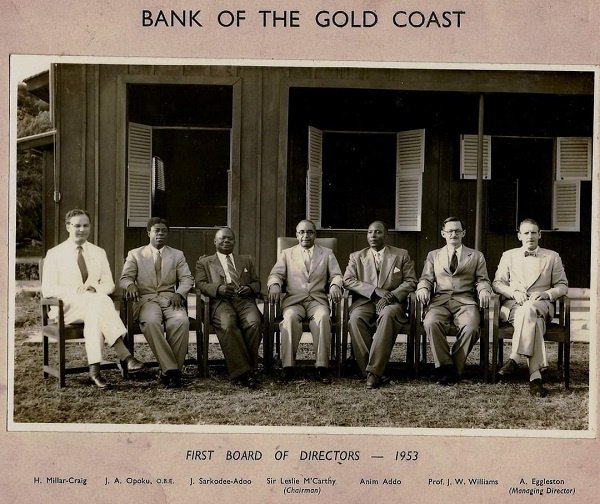In 1947, a vision to establish a national bank with central banking functions was conceived in what was then the Gold Coast. This institution, now known as GCB Bank, stands as arguably the oldest indigenous bank in Ghana.
The foundation for this venture was laid with the input of prominent politicians in the Gold Coast. Two years later, in 1949, a select committee of the Legislative Assembly was formed to delve into the concept of creating a national bank solely focused on central banking functions. The year 1951 saw the appointment of Sir Cecil Trevor by the government to explore the establishment of a state-owned commercial bank. This bank would aid in financing development projects and operate as a reserve bank providing clearing house services.
Following Sir Cecil Trevor’s recommendations, the Bank of the Gold Coast was established in 1952 under the Bank of the Gold Coast Ordinance. The name later transformed into GCB Bank, officially commencing operations in 1953. Alfred Engleston was appointed as its inaugural head.
In its early days, GCB Bank concentrated its efforts on serving Ghanaian traders, farmers, and entrepreneurs who were underserved by foreign banks at that time. The Bank of the Gold Coast was eventually divided into two segments: the Bank of Ghana, which evolved into a complete central bank, and Ghana Commercial Bank, intended to become the leading commercial bank with a monopoly on the accounts of public corporations.
Four months after Ghana’s independence in March 1957, Alfred Engleston was named the first Governor of the Bank of Ghana. Under his leadership, the Bank of Ghana assumed control of the national currency and introduced the cedi in July 1958, replacing the old West African currency notes.
With the dawn of Ghana’s independence, the Bank of the Gold Coast was rebranded as Ghana Commercial Bank, taking on the roles and responsibilities of government bankers. This encompassed managing the finances of government departments and newly established public corporations.
In 1996, even though the Government of Ghana retained full ownership of the Bank of Ghana, the bank’s shares were listed on the Ghana Stock Exchange, with government ownership at 51.17 percent.
Presently, government ownership of GCB Bank stands at 21.36 percent, while the remaining 78.64 percent is held by institutions and individuals, as reported by the Bank of Ghana.
Between 2013 and 2014, the bank rebranded itself as GCB Bank Limited. It has since expanded its services to cater to the banking needs of large corporations, parastatal entities, small and medium-sized businesses, as well as individual customers.
Over the years, GCB Bank has grown exponentially, evolving from a single branch in the 1950s to a network of approximately 150 branches and 11 agencies that span across the entire country.


